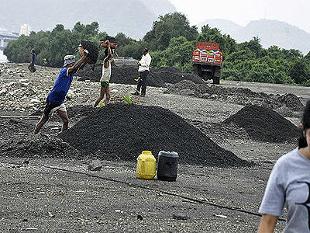 New Delhi, Sep 28: In a blow to brick-kiln industry and road contractors, the National Green Tribunal has banned digging of earth across the country for making bricks and roads without prior environment clearance (EC).
New Delhi, Sep 28: In a blow to brick-kiln industry and road contractors, the National Green Tribunal has banned digging of earth across the country for making bricks and roads without prior environment clearance (EC).
A bench headed by Justice P Jyothimani has directed the Chief Secretaries of all the states and union territories to ensure that its interim order is adhered to.
"We restrain any person, company and authority to carry out any such digging activities of brick earth or ordinary earth against the directives issued by the Ministry of Environment and Forests (MoEF) of June 24, 2013 in any part of the country without obtaining EC from the competent authority.
"The Chief Secretaries of all states/Union Territories (UTS) are to ensure strict adherence to this order," it said.
The tribunal issued notices to Uttar Pradesh seeking its response on the plea for directions to the state government to stop extraction of earth for making bricks and roads, which is allegedly going on in violation of a Supreme Court decision as well as directions of the MoEF to all the states.
"Considering the seriousness of the issue", the bench restrained the UP government from permitting such digging until further orders of the tribunal.
The NGT made the order applicable to all the states saying "as the judgement of the apex court as well as the directives issued by MoEF has got the effect and applicability throughout the territory of India,... what is applicable to respondents (UP government) by our interim order is applicable to all the other states and UTs also".
The ban on brick earth mining comes one-and-a-half months after the NGT banned sand mining from river beds, without environment clearance, across the country.
As per the petition, MoEF in its office memorandum to the states has directed that digging of earth for making bricks and roads requires EC from the competent authority.
The petition has alleged that in spite of the decision of the apex court and the directives of the MoEF, the Uttar Pradesh government has not framed rules/guidelines for the purpose of obtaining EC and are allowing indiscriminate digging of earth.





Comments
Add new comment